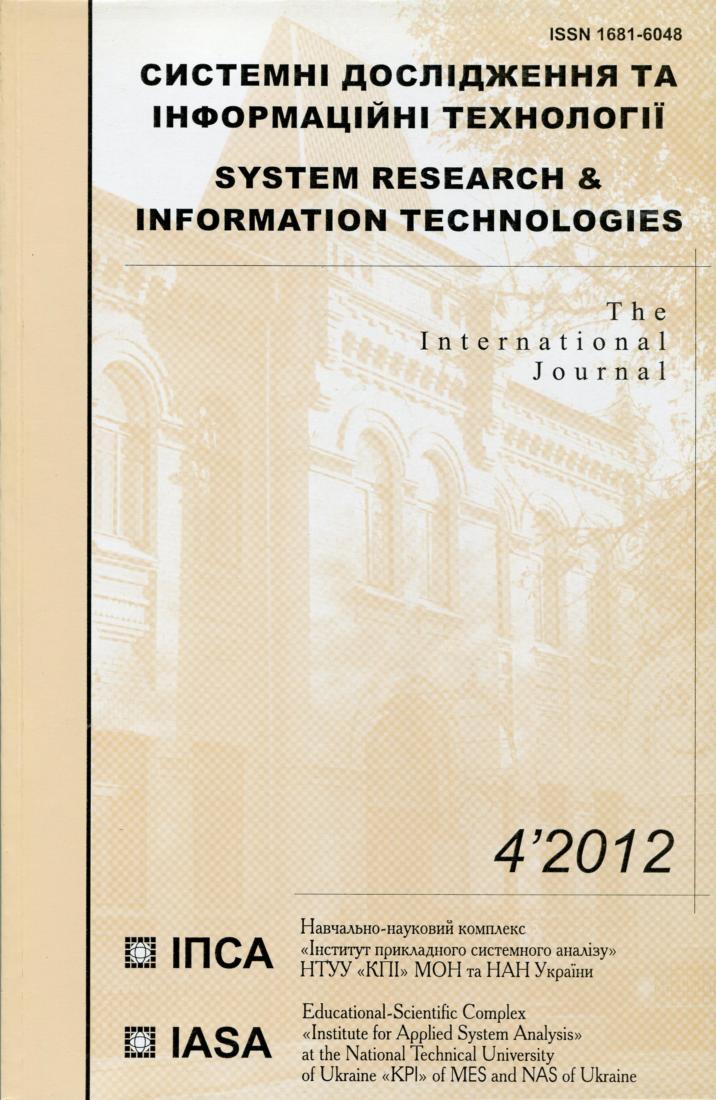Methodology of scenario development for complex social systems using morphological analysis and SWOT-analysis. Part 1
Abstract
In this part of the article a methodology of scenario development for complex social systems ia presented. Proposed methodology consists of 9 stages, for each of which the methods, the nature of the input and output of information, practical advice are described. The procedures of obtaining of expert information on the key variables of the system, driving forces, the states of the driving forces that affect on it and future states of the driving forces of their consistency are described. For selecting key variables of the system the approach on the basis of SWOT-analysis is proposed. To generate many of the scenarios it is proposed to use a morphological analysis. A scenario space, built with the help of morphological analysis, is reduced in the result of the analysis of the consistency of the states of the driving forces. For the analysis of the scenario space in the general form there are several approaches in the article, but this task remains open and promising for further investigation.References
Shell Energy Scenario to 2050. — Shell International BV, 2008. — 48 p. — http://webhost.ua.ac.be/psw/pswpapers/PSWpaper%202000-07%20bertrand.pdf.
Barbanente A., Khakee A., Puglisi M. Scenarios Building for Metropolitan Tunis // Futures. — 2002. — № 34/7. — Р. 583–596.
Westhoek H.J., М. van den Berg, Bakkes J.A. Scenario Development to Explore the Future of Europe’s Rural Areas // Agriculture, Ecosystems & Environment. — 2006. — № 114. — P. 7–20.
Ph. Van Notten, Scenario Development: a Typology of Approaches // Think Scenario, Rethink Education. — Paris: OECD Publishing, 2006. — Р. 69–84.
Godet М. Creating Future. Scenario Planning as a Strategic Management Tool. — Paris, Economica Ltd, 2006. — 369 p.
Wack Р. Scenarios: Shooting the Rapids // Harvard Business Review 63. — № 5. — Boston, Harvard Business Publishing, 1985. — Р. 72–29.
Schwartz Р. The art of the Long View: Planning for the Future in an Uncertain World. — NY, Currency Doubleday, 1991. — 272 p.
Pereverza K.V. Stsenarnyy pidkhid v zadachakh analizu skladnykh sotsial'nykh system // Systemni doslidzhennya ta informatsiyni tekhnolohiyi. — № 1. — 2011.
Hill T., Westbook R. SWOT-analysis: it’s Time for a Product Recall // Long Rang Planning. — № 30 (1), 1997. — Р. 46–52.
Pickton D.W., Wright S. What's SWOT in Strategic Analysis? // Strategic Change — 1998. — № 7. — Р. 101–109.
Zhurovs'kyy M.Z., Pereverza K.V. Metodyka pobudovy stsenariyiv rozvytku Ukrayiny z vykorystannyam SWOT-analizu // Systemni doslidzhennya ta informatsiyni tekhnolohiyi. — № 2. — 2009. — S. 7–17.
Human Development Indicators, HDI. — http://hdr.undp.org/en/.
Environmental Performance Index, EPI. — http://epi.yale.edu/.
World Data Center, WDC. — http://wdc.org.ua/.
Zgurovsky M., Gvishiani A. Sustainable Development. Global Simulation: Quality of Life and Security of the World Population. — Polytechnika, 2008. — 350 p.
Zgurovsky M. Analysis of Sustainable Development – Global and Region Contexts. — Polytechnika, 2009. — 219 p.
Zwicky F. The Morphological Method of Analysis and Construction // Courant. Anniversary Volume. — NY: Intersciences Publish, 1948. — P. 461–470.
Ritchey T. Futures Studies Using Morphological Analysis, 2005−2008. — www.swemorph.com. 19. Ogilvy J., Schwartz P. Plotting Your Scenarios. — San Francisco: John Wiley & Sons. — 1998. — 20 p.

